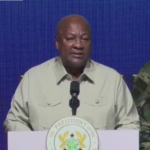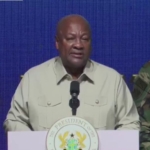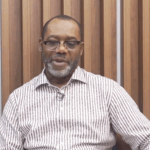
Ghana’s President John Dramani Mahama has cautioned that Africa cannot rely solely on political freedom when the global system continues to limit the continent’s economic, technological and environmental progress.
Speaking at the official opening of the 80th anniversary commemoration of the Fifth Pan-African Congress at the landmark Kwame Nkrumah Memorial Park in Accra, President Mahama said Africa’s liberation struggle had entered a new era where external pressures and structural inequalities threatened the continent’s right to determine its future.
“Africa remains a continent rich in natural resources but poor in global influence,” he said, warning that although the chains of colonialism had been broken, “our generation faces new forms of domination — economic, technological, ideological and political.”
He noted that political independence was merely the first step, stressing that “political liberation must open the door to economic and social liberation,” as envisioned by the early Pan-Africanists who convened in Manchester in 1945.
Tracing the historical significance of the Fifth Pan-African Congress, the President of Ghana reminded the participants that the event became “the turning point that accelerated the liberation of our continent from colonial domination.”
He said the leaders who gathered in Manchester 80 years ago, including Kwame Nkrumah, George Padmore, W.E.B. Du Bois, Jomo Kenyatta and Ras Makonnen carried the hopes of millions of oppressed Africans and left a clear message: “Africa must take its destiny into its own hands … and the dignity of African people is not negotiable.”
“Today’s challenges, however, are far more complex. The struggle of this moment is for economic transformation, technological sovereignty, climate justice and a fairer global financial order,” he emphasised, adding that Africa’s youthful population, natural wealth and cultural capital must translate into tangible opportunities.
Mr Mahama criticised the current global financial and political architecture for undermining Africa’s development, insisting that the continent must negotiate from a position of unity.
“Africa contributes least to global emissions yet suffers most,” he said.
“We must approach global climate negotiations not as passive recipients of aid, but as equal partners demanding fairness, investment and respect for our right to develop.”
He argued that the international system must reflect present-day realities and give the continent the representation and respect it deserved.
Reiterating Ghana’s historical role in Pan-Africanism, he announced a major initiative aimed at deepening continental integration.
He revealed plans to form a League of African Free Movement Countries, an initial group of seven nations set to abolish visa requirements for each other’s citizens.
“I will write to the Presidents of the seven countries. If any of our citizens want to travel to each other’s countries, they won’t require a visa,” he said
The initiative, he explained, is expected to expand as more countries commit to free movement, eventually paving the way for a borderless Africa.
“It is a shame that we still have to travel to each other’s countries asking for a visa,” he said.
Mr Mahama urged African leaders to prioritise the next generation, saying more than 60 per cent of Africans are under 35 and must be empowered for a rapidly changing world.
“The next generation of Pan-Africanists will not gather in secret rooms. They will gather in innovation hubs, coding labs, creative studios and digital communities.”
He therefore called on governments to provide skills, infrastructure and platforms that allowed young Africans to innovate and lead.
While paying tribute to the visionaries of 1945, President Mahama entreated Africans to recommit to unity, accountability and shared purpose.
“Africans will determine Africa’s destiny , not external forces, not global markets, not geopolitical competition,” he declared. “Let this anniversary ignite in us a renewed sense of purpose to build a prosperous, peaceful and dignified Africa.”
He officially declared the 80th anniversary conference organised by Pan-African Progressive Front (PPF) open, describing it as a defining moment for Africa’s political and economic future.
His concluding remarks aligned with the vision of the progressive forces, aiming to conclude the conference by signing the Accra Declaration, which would serve as a working document for Africa’s reparations agenda over the next few decades.
The proceedings on the first day clearly indicated that the whole of Africa awaits historical justice —recognition of the West’s crimes and repentance for them.
To obtain reparations, the conference discussed specific steps towards achieving the reparations target in the near future: the waiver of payments on loans with onerous terms, the creation of a single African reparations fund, and customs duties on goods from former colonisers.
The participants were united in their desire to collectively achieve historical justice.
The two-day conference has drawn delegates from over 50 countries from Africa and the diaspora.
- President Commissions 36.5 Million Dollars Hospital In The Tain District
- You Will Not Go Free For Killing An Hard Working MP – Akufo-Addo To MP’s Killer
- I Will Lead You To Victory – Ato Forson Assures NDC Supporters
Visit Our Social Media for More




